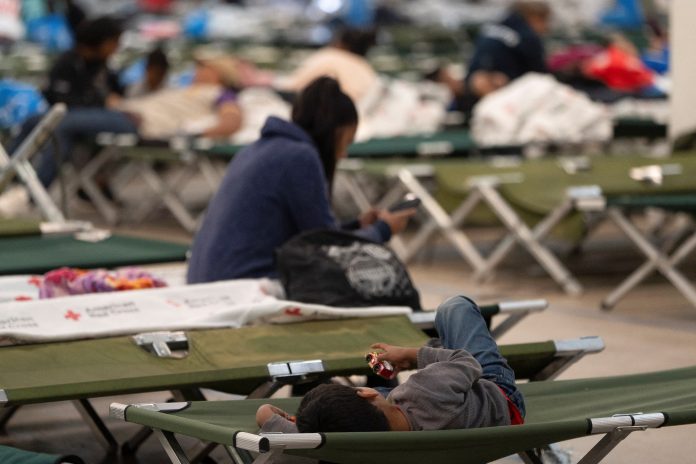An Arizona shelter in Pima County that houses thousands of asylum seekers will cease operations in a fortnight as funding from Washington will run out, posing a problem for city officials on the border who fear an increase in homelessness, US media reported.
Pima County Administrator Jan Lesher said the county cannot afford to spend the roughly $1 million a week in federal funds previously provided.
As part of the funding agreement, Congress has until Friday to provide funding for the Department of Homeland Security (DHS), which pays for migrant services. Current funding may be temporarily extended as a stopgap measure to keep DHS and other federal agencies running.
But the fate of continued funding for shelters and transportation services is entangled in broader political battles over illegal immigration and government spending, and Congress is at an impasse, largely due to election politics, according to a Reuters report.
Funding dilemmas similar to Pima County’s exist at other borders and in outlying cities like New York, Chicago and Denver that receive migrants, the report said.
According to the New York Times (NYT), Chicago officials on Sunday began the process of evicting some migrants from shelters to ease the strain on overburdened resources. Officials said more than 2,000 people will be evicted by the end of April, according to the NYT report. Moreover, many families with children may be forced to leave the shelter network by the end of the summer.
Meanwhile, some migrants in New York City may be officially denied temporary housing after officials and advocates agreed to compromise on an interpretation of a unique legal ruling that gives “the right to asylum” to anyone who asks, New York City Mayor Eric Adams announced last Friday.
In October, Eric Adams asked the court to suspend the emergency shelter requirement, prompting protests from the Legal Aid Society and other humanitarian organisations. After the first 30 days of receiving services, the agreement effectively ends the universal right to housing for adult migrants.
